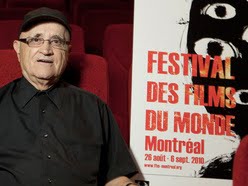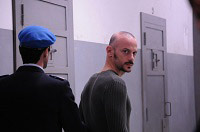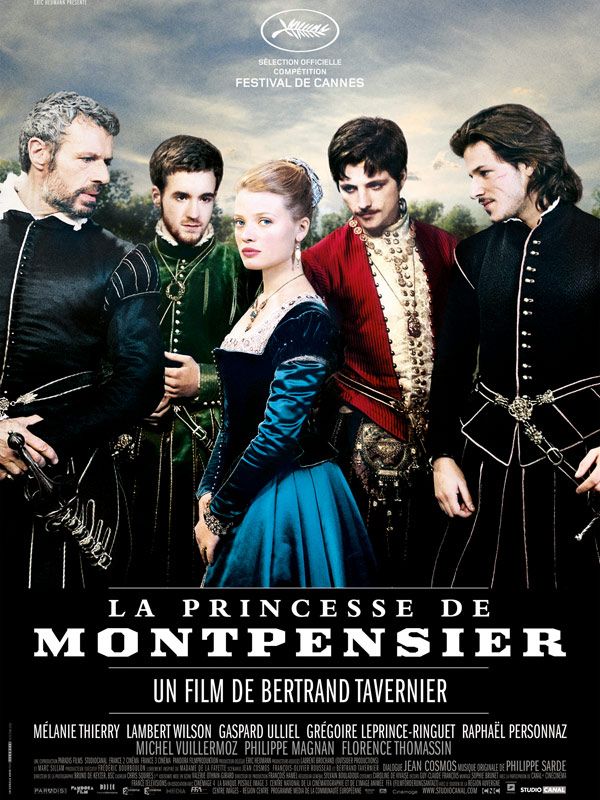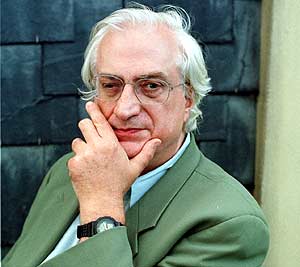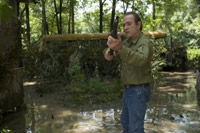|
|
||
|
Pro Tools
FILMFESTIVALS | 24/7 world wide coverageWelcome ! Enjoy the best of both worlds: Film & Festival News, exploring the best of the film festivals community. Launched in 1995, relentlessly connecting films to festivals, documenting and promoting festivals worldwide. Working on an upgrade soon. For collaboration, editorial contributions, or publicity, please send us an email here. User login |
Montreal Film In Focus: VENICE
On my first evening at the Montreal World Film Festival on September 1, my thoughts are going to Venice. Not only because that venerable film festival opens today but because Venice, as both a real place and a metaphor, is a potent symbol in the Polish film viewed this evening in Montreal, which is simply called VENICE.
The film, which is making its International Premiere in the World Competition section here, is written and directed by Jan Jakub Kolski, a veteran Polish filmmaker who has made 10 films since his feature debut in 1990. His 2000 film KEEP AWAY FROM THE WINDOW premiered at the Montreal World Film Festival, so this marks a return to Quebec for the director. His 2003 film PORNOGRAPHY was a hit on the film festival circuit and cemented his reputation as one of Eastern Europe’s most interesting stylists.
VENICE begins in the days immediately before the German invasion of Poland (to be exact, September 1, 1939), therefore making the film an inadvertent 71st anniversary of the extraordinary event that led to World War II. The film follows several generations of a Polish bourgeois family, with most of the film set in the rural family villa where the family members come for solace and (what they hope) will be a refuge from the ravages of war. As the seasons change and the realities of war rear their ugly heads, it becomes clear that no physical place is truly safe….the last refuge of hope lies in the imagination.
The film is told from the point-of-view of Marek, a pre-teen boy who longs to escape from his difficult life to an idealized Venice. The city of lagoons and canals looms large in his imagination as a place of enchantment and harmony, which contrasts with the realities of wartime deprivation and the divisive “war” between his separated parents. When the basement of the villa floods, Marek and his cousins recreate a Venice-in-miniature…..a testament to their love for the place and the metaphoric tranquility that the enchanted city represents.
The film, which features strong acting by its cast and an impressive cinematic look by its director of photography, gets all the elements right…..the brightness of the light representing optimism in the halcyon summer days immediately preceding the German invasion, the harshness of the snowy winters and their sense of bleak reality, and the enduring bond of a family that suffers the losses felt by an entire nation. The film makes a conscious nod to the atmosphere of the plays of Anton Chekov, by mirroring that famed playwright’s examination of the subtleties of family dynamics and the sense of home as both a place of refuge and a hotbed of passion, jealousy, recrimination, regret and, ultimately, optimism.
It also, for me, had resonances of a film with a similar subject matter, the 1970s Italian drama THE GARDEN OF THE FINZI-CONTINIS by legendary director Vittorio de Sica. In that film, a privileged Jewish family gathers in the walled paradise of their park-like villa to escape (for a time) the mounting storm of fascist Italy that will ultimately lead them to the destruction of their way of life. Both films chillingly portray the costs of war, the tenuousness of life and the role of fate.
In a coda that seems to make a contemporary statement, the final sequence of the film jumps ahead to the winter of 1945, when Poland was being “liberated” from Nazi rule by the Russian army. As one of the sisters returns to the family villa, she encounters a Russian soldier playing a beautiful sonata on the piano that figures so strongly in earlier scenes in the film. After playing this rhapsodic piece (and lulling the audience into thinking that a new civility and humanity will take root following the devastation wrought by the Nazis during their occupation of the country), the soldier picks up his gun and indiscriminately fires its rounds, killing the sister. In a wry commentary, the director seems to be stating that the new Russian masters will be as devastating and cruel as the Germans they replaced…..a reversal of the fairy tale of post-war Poland’s lionizing of the Russians as liberators. Freedom, of a person and of a nation, is the dream that is sought in a place in the imagination that this film chooses to call Venice.
Sandy Mandelberger, Festival Dailies Editor 02.09.2010 | Montreal World Film Festival's blog Cat. : Anton Chekov Cinema of Italy Cinema of Poland Director Eastern Europe editor Entertainment Entertainment Festival Dailies Film Film festival Films Italy Jan Jakub Kolski Jan Jakub Kolski Montréal Montreal World Film Festival Natural Disaster Person Career Polish cinema Pornografia Québec Russian army Sandy Mandelberger The Garden of the Finzi-Continis the Montreal World Film Festival Venice Venice Venice Vittorio De Sica Vittorio De Sica FILM
|
LinksThe Bulletin Board > The Bulletin Board Blog Following News Interview with IFTA Chairman (AFM)
Interview with Cannes Marche du Film Director
Filmfestivals.com dailies live coverage from > Live from India
Useful links for the indies: > Big files transfer
+ SUBSCRIBE to the weekly Newsletter Deals+ Special offers and discounts from filmfestivals.com Selected fun offers
> Bonus Casino
User imagesAbout Montreal World Film Festival Sandy Mandelberger Sandy Mandelberger ( International Media Resources)
Online Dailies Coverage of the 35th annual Montreal World Film Festival to be held from August 18 to September 28, 2011. View my profile Send me a message The EditorUser contributions |



















